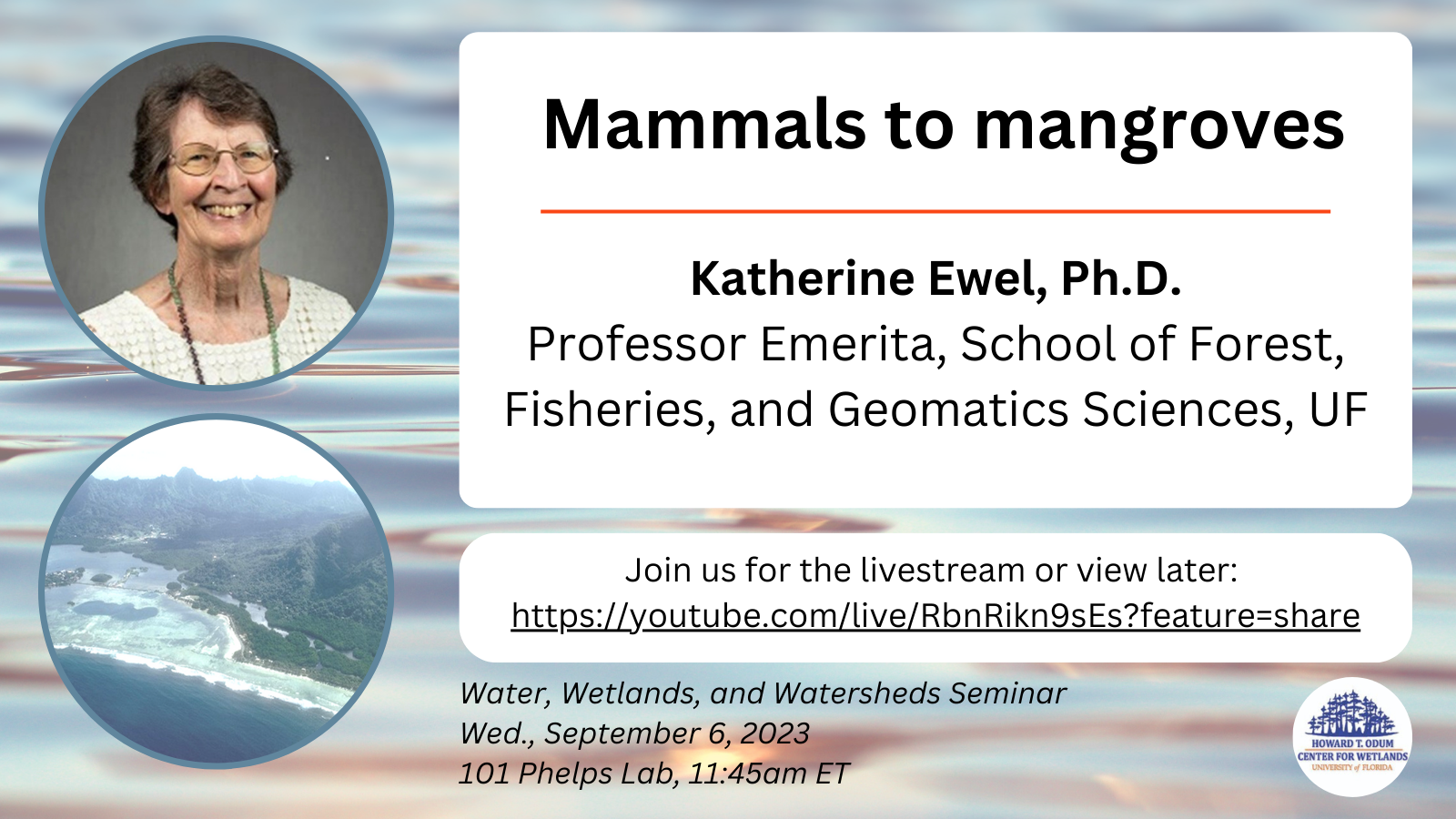
Katherine Ewel, Professor Emerita, School of Forest, Fisheries, and Geomatics Sciences, UF
Join us for the livestream September 6th, 11:45am ET: https://youtube.com/live/RbnRikn9sEs?feature=share
(Please visit our YouTube channel main page for the stream if there are any issues with the direct link.)
ABSTRACT
My career transmogrified from mammalogy to ecosystem ecology with the support and encouragement of H. T. Odum. For eight years I monitored seedling growth and survival of two species of mangroves on the island of Kosrae, Federated States of Micronesia. Height growth was slow, sometimes zero for several years running, and no newly established seedling attained the sapling stage by the end of the study. Mortality rates of all the seedlings measured averaged 36% year−1, but this high loss rate was offset by similarly high annual recruitment. The seedling bank (1748 individuals were monitored) acts, as HTO might have said, as an insurance policy, ensuring stand replacement in the event of canopy disruption.
BIO
Katherine C. Ewel graduated in zoology from Cornell University (A.B.) and the University of Florida (PhD). While an Instructor at Duke University, she sat in on H. T. Odum’s systems ecology course at the University of North Carolina and became interested in computer modeling. After moving back to UF, she worked with HTO on the use of forested wetlands for wastewater treatment, a project that led to the founding of the Center for Wetlands. After 17 years as a faculty member in UF’s School of Forest Resources and Conservation, she moved to Hawaii to lead a USDA Forest Service team working on forested wetlands. She was awarded Professor of the Year in UF’s College of Agriculture; received the Forest Service Chief’s Award for Multicultural Organization; was elected President, and later, Fellow of the Society of Wetland Scientists; and, in 2022, was awarded UF’s Stephen C. O’Connell Distinguished Service Award.
POSTCARD
